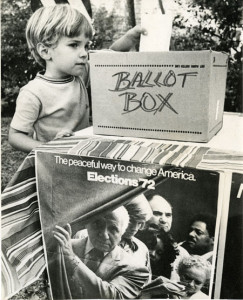(Following on from yesterday’s posting about how IT and games are changing the education world, here’s an interview I did for the Austin Chronicle with Grace Lau, director of VR the Global Nomads Group, a nonprofit dedicated to reducing the barriers of understanding between kids in different nations.)
It’s a small world, but, as the old saying goes, you wouldn’t want to walk it. For centuries, the only way to truly experience another culture was to visit it. Now international travel has never been easier, but it seems too much of the conflict-ravaged world is off-limits to the students most eager to learn about it. For Grace Lau, director of virtual reality for education nonprofit Global Nomads Group, technology can still help bridge the gaps of oceans and borders. She said, “When you put people in front of each other, whether it’s face to face or in the virtual world, we found that they’re able to draw out those natural human connections.”
The purpose of GNG is to make students into global citizens. So far, the nonprofit has linked students in the U.S. to kids in South America, Thailand, Afghanistan, Pakistan, and nations across Sub-Saharan Africa – “places with the largest culture gap between the U.S. and abroad,” said Lau. However, their biggest initiative at the moment is in the Middle East.
The core of this initiative was Project Syria, a collaboration with virtual reality pioneer Nonny de la Peña that connected South Central Los Angeles’ View Park Preparatory Charter High School and Mahatta Community Center in Amman, Jordan. Originally commissioned by the World Economic Forum, this VR tool simulates the experience of being in a conflict zone. Lau said, “Through CGI, Nonny’s team at Immersive Journalism re-created a street bombing in Aleppo, Syria. So with these headsets, the students in L.A. went through what it would be like on that street corner. Then we connected those students with Syrian refugees here in Jordan.”
